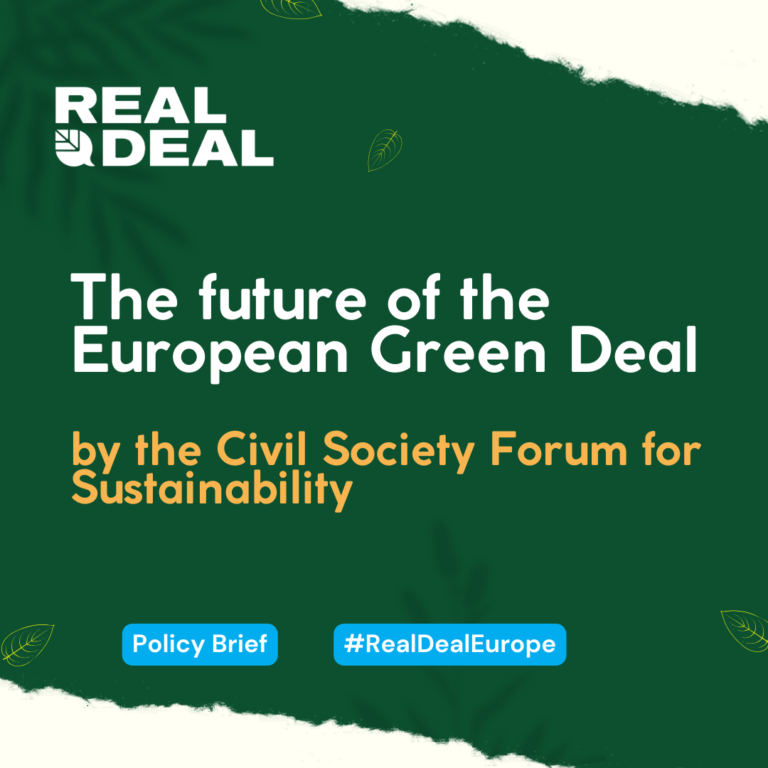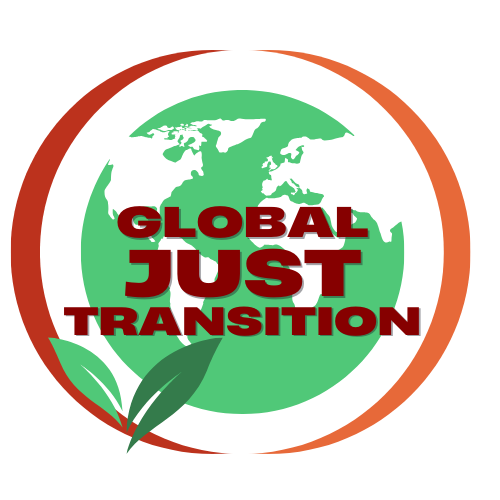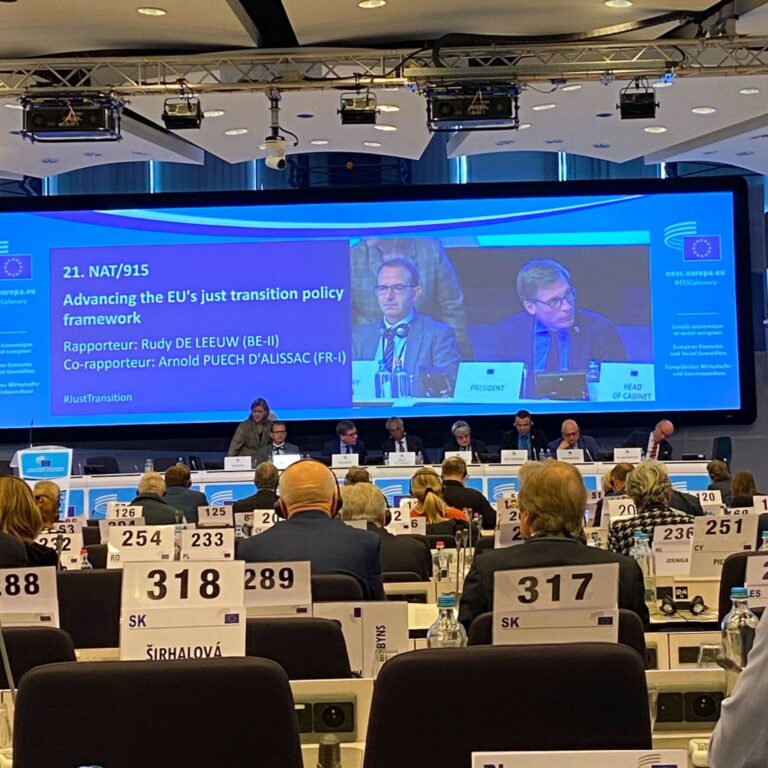The Leaders’ choice: advance the Green Deal peace project or go back to 20th century – EEB and SOLIDAR Joint OpEd
December 12 2022
Ahead of the next European Council, which is taking place on 15 December 2022 in Brussels, EEB and SOLIDAR call on political leaders in Europe to recognise that the European Green Deal is a peace project that promotes energy and materials independence, strengthens social, economic and environmental resilience, and, if designed properly, enables a Just Transition.
The uncomfortable truth of past decisions missed
Had the European Green Deal (EGD) been launched twenty years ago, the EU would have been able to respond to Russia’s invasion of Ukraine with much more confidence and autonomy with far less compromising and debilitating levels of fossil fuel and resource dependence.
The 1970s oil crises had underlined the risks of dependency. Diversification of sourcing for the EU’s fossil-fuel dependency created a dangerous chimera of a solution.
The 1992 Earth Summit and all the following international climate and environmental summits have offered continuous wake-up calls on the dangers of fossil-fuel dependency, with existential crisis of climate, biodiversity and pollution driven by fossil-fuel and wider resource extraction and use.
These warnings have not been heard, nor proposed solutions heeded.
One profound lesson that Europe must take away is that we must be on guard against short-term promises of cheap energy and resources that may only create dangerous dependencies. A second lesson is that irresponsible acts on the planet lead to devastating consequences.
The EGD is a peace project and part of the solution
Political leaders must therefore spare no efforts in the implementation of the EGD as a core part of the solution to the current crisis. EGD measures can profoundly accelerate the production of renewable energy, promote the greater efficiency in energy use and energy saving to blunt energy prices and cut costs. This will help Europeans to cope, build resilience and create greater political room to manoeuvre.
In this way, the EGD will also serve as a long-term peace project. It reduces the risk of energy driven conflicts and limits financial flows to countries which do not share European values. Diminishing rents to fossil-driven governments would constrain their power and influence, their sense of being above international rules, and make it easier for stronger democratic competition to emerge.
Ignore disingenuous narratives
The war in Ukraine, fossil fuel price hikes and inflation has led to a surge in narratives trying to undermine the EGD. There has been enormous business and political pressure to drop or delay EGD legislation and even roll back wider social and environmental protections. The arguments are disingenuous and only reflect industry’s short-sighted self-interest. Ironically, this may actually undermine business interests in the long term.
Undermining the EGD is exactly the opposite of what needs to be done.
The levers of change for this winter and the next
Europe has the levers and tools to support energy justice, help avoid energy poverty and blunt prices. These include a strong push for the fastest possible roll out of energy efficiency, energy savings and building renovation measures, promoting public and active transport, and accelerating circular economy measures. Such measures will reduce the total energy demand. Complementing this, the focus should be on dramatically speeding up nature-positive renewables deployment focusing on “go to” areas, without undermining environmental protections. Invest in capacities for assessment, decision-making and consultation which are the real barriers to the roll out of renewables. Fill the gaps with additional energy sources that don’t lock us into new dependencies.
And finally, we should address fuel poverty and support energy justice through direct payments for people, not fuel subsidies that actually foster dependencies. We must strengthen the Social Climate Fund by making it well-resourced with revenues from reliable sources, and we should promote taxes on windfall profits to raise needed funds and level the playing field to increase fairness.
Levers for a resilient future
Decision-makers must stay resolute and roll out a strong, transformative EGD, with the European Pillar of Social Rights fully integrated to ensure a just transition to climate neutrality. We need to go beyond Fit-for-55 and aim for emissions reduction of 65% by 2030, which is necessary to avoid climate cataclysms, and commit to 100% renewable energy sources as the best way to undo unpalatable dependencies.
Leaders should recognise that “non-energy-and-climate files” can reduce energy and material use, and hence promote an Ambient Air Quality Directives reform that is fully compatible with WHO standards to support health while reducing fossil-fuel. Deliver circular economy promises, including a strengthened right to repair and eco-design commitments supporting citizen agency and affordability.
We should invest more in a regenerative ecology and economy though nature restoration, soil health and sustainable food systems laws that improve ecosystem resilience and sustainability.
Finally, to avoid EU’s fiscal hands being tied and to promote fair and effective rule of law that achieves social, climate and environmental justice, we need an economic governance reform and to strengthen access to justice, information and public participation – the bedrocks of healthy governance and democracy. Here much more can be done to put into law effective and dissuasive penalties and sanctions via the environmental crime directive and ensure companies are liable for their impact on human right violations and environmental degradation via the corporate sustainability due diligence directive.
These will support the just ecological-industrial transition, but more is needed. The transformative measures should go hand-in-hand with progressive reforms such as strengthening the welfare state, social protection and redistribution of wealth to enable a whole of society transition.
The choice is now
EU leaders can now choose to build an expansive and transformative EGD that supports peace, resilience and sustainability or go back to 20th century policies that will only exacerbate our problems.
EEB and SOLIDAR believe there are no real alternatives to taking bold decisions that lay the foundations for a new social contract. Our future security depends on it, as does our political and diplomatic independence.
We need to make these decisions now and if we do it right, it carries the promise of a sustainable, resilient future we all can believe in.
Read the article also on Euractiv.





